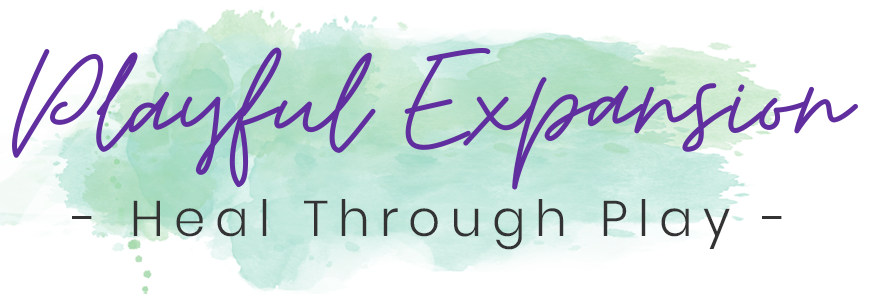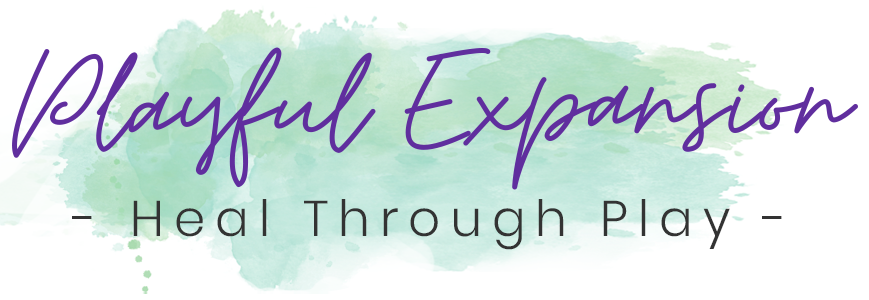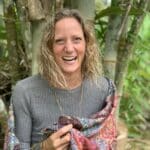
Unstructured play is something most of us experience during a healthy childhood and is super important to our brain health and development. All animals and even reptiles and insects play as well!
Play is defined by the Merriam-Webster dictionary as:
1. To occupy oneself in an activity for amusement or recreation.
2. To take part in a sport or game.
But really, play can be anything that brings you a sense of joy and connection!
You can play alone (being creative with a hobby or passion project) or you can play with others (any kind of sport or board game for example).
In Playful Expansion, I focus specifically on play that brings us together in groups of two, a few, or more in order that we may be witnessed, encouraged, and accepted in our creativity.
OK, so that’s how we’re defining “play”.
Now why do it?
Well, when we play in this way, it can encourage a powerful healing of conscious and unconscious beliefs, patterns, and traumas. This kind of play is an invitation to heal, rediscover your authentic self, and connect with others through curious and intentional physical activity.
I can hear you now, “What?!? C’mon, that’s a lot to bestow on some simple games.”
It may seem a tad overboard but stick with me and all will become clear 😉
Let’s look at limiting beliefs, patterns and traumas…where do they come from??

To answer that, we need to examine what our basic emotional needs are as human beings:
Authenticity and belonging are basic needs.
As defined by Dr. Gabor Mate, authenticity is a connection to self and the ability to follow the guidance of our gut feelings. With that self-knowledge, we may navigate life’s challenges successfully.
Makes sense, right?
If we have a strong connection to ourselves, we trust ourselves. We can hear the subtle whispers of our bodies and hearts. And we trust what they tell us.
This makes as much sense now and it did when we were potentially chased by predators. If we can hear our spider senses tingling…we can run, fight, or hide. It doesn’t matter whether it’s a physical threat in an alley or a bad business deal or unhealthy relationship, our connection to our intuition matters.
Even before we see the danger, we can hear and trust our intuition and take action.
So. Authenticity = Survival.
Now let’s look at Belonging.
in 1995, Baumeister and Leary’s landmark paper, “The need to belong: Desire for interpersonal attachments as a fundamental human motivation,” firmly identified belonging as a universal human need, ingrained in our motivation as a species and stemming deeply from our ancestral roots.
The human mind has an almost universal desire to form and keep relationships with others and the need to belong may well be considered equal alongside other human needs such as food and water.
Consider our experiences only a few short years ago with COVID. No matter where you were in the world, you experienced a feeling of disconnection and while it affected everyone on a different scale, we all felt the impact of not being able to foster feelings of belonging with family and friends.
So. Belonging = Survival
Now think back to your early childhood and developmental years.
Were you ever told to “quiet down” or “behave” when you were just being your happy, loud little self?
Or maybe in different ways and different words you were reminded to play smaller, not take up space, and generally “behave like everyone else” instead of being encouraged to let your freak flag fly.
Unfortunately that’s a pretty normal experience for almost everyone on earth. And no one’s blaming your parents! This is the way our society has been shaped for better or worse.
Every time that happened, your little brain made a decision that it was better to behave and belong rather than inhabit your true nature and risk standing out.
You slowly and unconsciously shut down your naturally creative, fully expressed, imaginative little self in lots of varied ways in order to fit in and essentially be loved.
So to sum up:
If we experienced the removal of love (in the form of attention or belonging) as a consequence of our true self-expression as we developed, it’s easy to understand how we unconsciously and voluntarily suppressed our authentic selves and created patterns of suppression in favour of receiving the belonging and care we craved.
But don’t fret! The great news is this:
“Scientists suggest that it takes approximately 400 repetitions to create a new synapse in the brain, unless it is done in play, in which it takes only 10-20 repetitions” – Karyn Purvis
As we see in the quote above, play helps us unlearn and re-learn pretty much anything much more quickly and easily!
Specifically at Playful Expansion, you are encouraged to bring your authentic ideas and creative impulses to the games we play in a safe, co-creative and fun space.
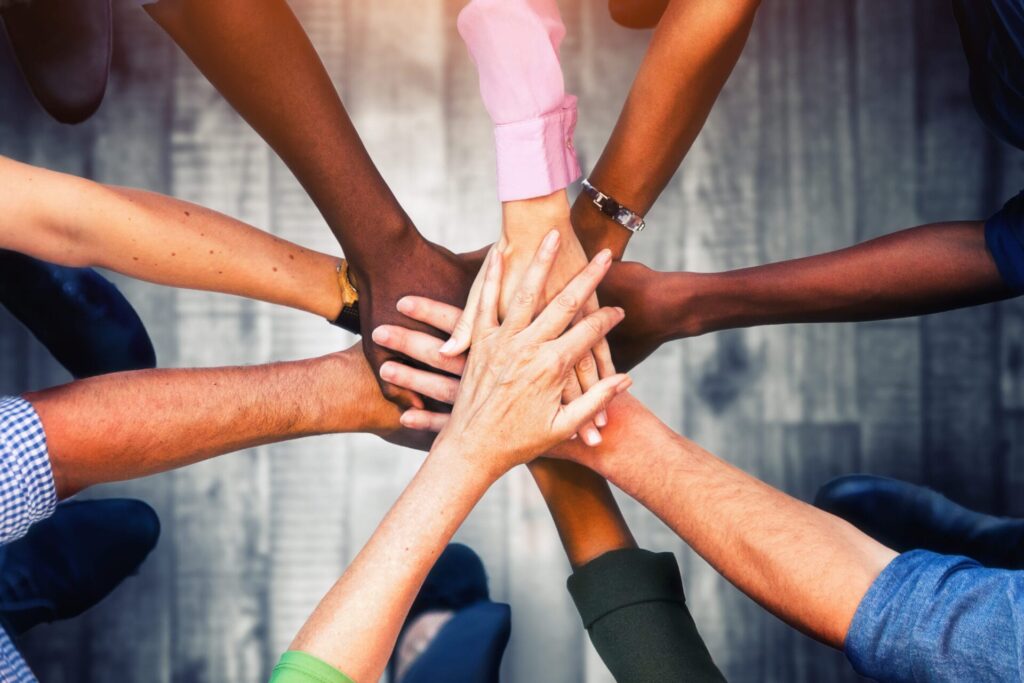
Because if we’re playing and having fun, we’re relaxed and open to change. It’s that simple.
Playing in a safe space, especially if the game is a little bit outside our comfort zone, can send our emotional body and brain the message that our authentic truth and self-expression is accepted and valued.
You belong here. Your ideas are worth hearing. You matter!
So go forth and play!
Claire Lindsay
Claire is a certified EFT master practitioner (tapping), a professional actor, adventure seeker, and an entrepreneur. She has been passionately following her own path of spiritual growth and healing since 2010. Claire founded Playful Expansion to encourage participants to break limiting beliefs and step into their own authenticity and power in a safe and fun environment.
